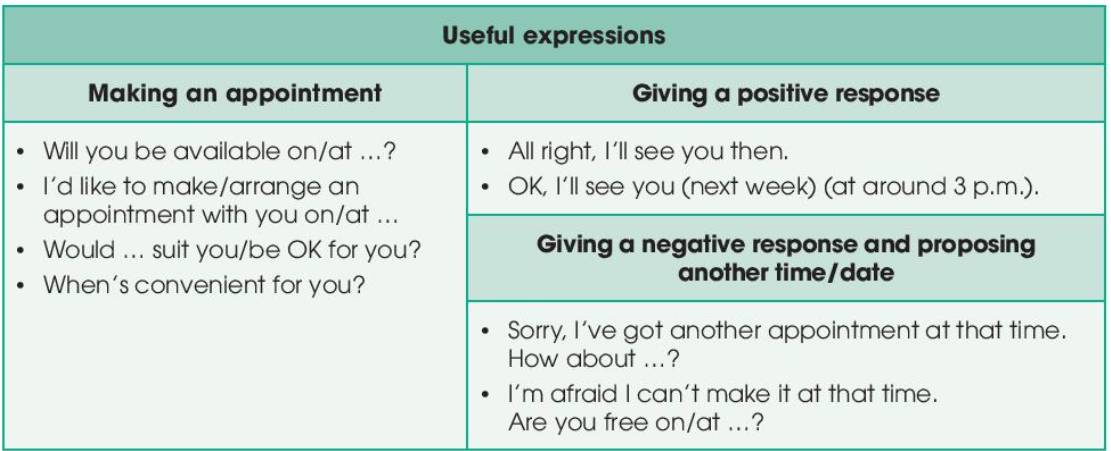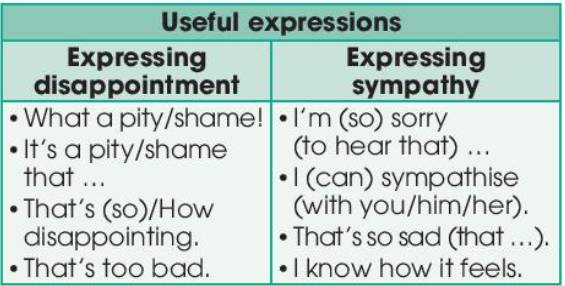Hãy nhập câu hỏi của bạn vào đây, nếu là tài khoản VIP, bạn sẽ được ưu tiên trả lời.

Choosing between college or university and vocational school depends on your interests, skills, and career goals. If you are interested in pursuing an academic degree, have a passion for learning, and want to explore different subjects, then college or university is the right choice for you. You will have the opportunity to deepen your knowledge in a particular field, meet new people, and develop transferable skills like critical thinking, communication, and teamwork.
On the other hand, if you have a specific trade in mind, enjoy hands-on learning, and want to start working as soon as possible, then vocational school is the right choice for you. You will acquire the practical skills and knowledge needed for a particular job, receive an apprenticeship, and earn a salary while studying.
Ultimately, the choice between college or university and vocational school depends on your individual needs, interests, and goals. It's important to do your research, talk to educational experts, and consult with your parents, teachers, or career counselors to make an informed decision.

A: Hey, do you want to go cycling this weekend?
B: Yeah, sure! Where do you want to go?
A: I was thinking we could either go to option A or option B. option A is a flat path by the beach, and option B is a scenic trail near the mountains,
B: Hmm, both sound good. Which one do you prefer?
A: I think we should go with option B because it offers more of a challenge and has some amazing views of the surrounding mountains. Plus, the cooler temperatures will be great for cycling.
B: That sounds awesome! Why not option A, though?
A: Well, I think option B might be a bit too crowded with tourists this time of year, and it might be too hot and humid for us to fully enjoy the ride.
B: Ah, got it. Option B it is then! Let's plan to meet early and make a day of it.
A: Sure. Can't wait to hit the trail!
Tạm dịch:
A: Này, bạn có muốn đi xe đạp vào cuối tuần này không?
B: Vâng, chắc chắn rồi! Bạn muốn đi đâu?
A: Tôi đang nghĩ chúng ta có thể chọn phương án A hoặc phương án B. Phương án A là con đường bằng phẳng bên bờ biển và phương án B là con đường mòn có cảnh đẹp gần núi,
B: Hmm, cả hai đều nghe hay. Bạn thích cái nào hơn?
A: Tôi nghĩ chúng ta nên chọn phương án B vì nó mang lại nhiều thử thách hơn và có một số cảnh quan tuyệt vời của những ngọn núi xung quanh. Ngoài ra, nhiệt độ mát hơn sẽ rất tốt cho việc đạp xe.
B: Điều đó nghe thật tuyệt! Vậy tại sao không phải là tùy chọn A?
A: Chà, tôi nghĩ lựa chọn B có thể hơi đông khách du lịch vào thời điểm này trong năm và có thể quá nóng và ẩm để chúng tôi có thể tận hưởng trọn vẹn chuyến đi.
B: À, hiểu rồi. Vậy chốt kế hoạch B nhé! Hãy lên kế hoạch gặp nhau sớm và thực hiện nhé.
A: Chắc chắn rồi. Không thể chờ đợi để đi vào đường mòn!

Bài tham khảo
A: What do you think of the musical in Picture A?
B: To be honest, I'm not a big fan of musicals.
A: How about the magic show in Picture B?
B: Personally, I really enjoy magic shows.
A: What do you think of stand-up comedy performances like the one in Picture C?
B: I must say, I'm really keen on stand-up comedy. I find it really entertaining.
Tạm dịch
A: Bạn nghĩ gì về vở nhạc kịch trong Hình A?
B: Thành thật mà nói, tôi không phải là một fan hâm mộ lớn của nhạc kịch.
A: Thế còn màn ảo thuật trong Hình B thì sao?
B: Cá nhân tôi thực sự thích các buổi biểu diễn ảo thuật.
A: Bạn nghĩ gì về những màn biểu diễn hài độc thoại như trong Hình C?
B: Tôi phải nói rằng, tôi thực sự thích diễn hài độc thoại. Tôi thấy nó thực sự thú vị.

- In my opinion, too much time spent on social media and games is the most likely to cause arguments in the family. For example, I have one younger brother, he is 14 years old, and he really likes playing on his smartphone. He can spend all of his free time using smartphone for entertainment and games. As a result, he ignores his studying and my mom and my dad have to force him to study a lot but he doesn't like it. This makes my parents angry and unsatisfied. They always shout at my brother, and he is becoming more and more aggressive. Therefore, my family always has an argument about this problem.
(Theo tôi, dành quá nhiều thời gian cho mạng xã hội và chơi game là nguyên nhân dễ gây ra cãi vã nhất trong gia đình. Ví dụ tôi có một em trai, em ấy 14 tuổi và em ấy rất thích chơi điện thoại thông minh. Anh ấy có thể dành toàn bộ thời gian rảnh của mình để sử dụng điện thoại thông minh để giải trí và chơi game. Kết quả là nó chểnh mảng học hành, bố mẹ phải ép nó học rất nhiều nhưng nó không chịu. Điều này khiến bố mẹ tôi tức giận và không hài lòng. Họ luôn quát mắng anh trai tôi và anh ấy ngày càng trở nên hung hăng hơn. Vì vậy, gia đình tôi luôn xảy ra tranh cãi về vấn đề này.)
- Some topics that cause arguments in families that I can think of are: what to see on TV, where to hang out, what kind of household appliance to buy, how to use money…
(Một số chủ đề hay gây tranh cãi trong gia đình mà tôi có thể nghĩ ra như: xem gì trên TV, đi chơi ở đâu, mua đồ gia dụng gì, sử dụng tiền như thế nào…)

1. The Crazy House is the most original and clever home because of its surrealistic and unique design that incorporates natural elements and animal motifs.
2. The living sculptures made by Gregory Kloehn are the most useful from a social point of view because they provide affordable housing solutions for homeless people using recycled materials.
3. I would like to live in the shipping container housing in Brighton because it offers a cozy and private space that is affordable and sustainable.
4. I would not like to live in the Crazy House because its unconventional design may not be practical for everyday living, and may not offer enough privacy or storage space.

[ 1 ] Student A: Hi there, do you need any help with your exercise routine?
Student B: Yes, please. I'm having a hard time with this one.
Student A: Let me help you with that. Here, let me show you the proper form.
Student B: That's very kind/nice of you. Thanks for your help.
Student A: Is there anything else I can do for you?
Student B: No, thank you. I think I'm good now.
[ 2 ] Student A: Excuse me, do you know where the healthy snacks are?
Student B: Yes, they are in aisle 3. Can I help you find anything else?
Student A: Actually, yes. I'm trying to find some low-sugar cereal for my kids.
Student B: Let me show you where it is. Here it is. That’s very kind/nice of you.
Student A: Thank you very much. Is there anything else I can do for you?
Student B: No, thanks. I think I’m fine now.

1.
A: I'm sorry, I can't go on the school trip with you. My little sister is ill and I have to take care of her.
(Em xin lỗi, em không thể đi dã ngoại với bạn. Em gái em bị ốm và em phải chăm sóc em ấy.)
B: Oh no! That's really disappointing. I was looking forward to going with you. Is your sister okay?
(Ồ không! Điều đó thực sự đáng thất vọng. Tôi đã mong được đi với bạn. Em gái của bạn có ổn không?)
A: She has a fever and needs to rest at home. I'm really worried about her.
(Cô ấy bị sốt và cần nghỉ ngơi ở nhà. Tôi thực sự lo lắng cho cô ấy.)
B: I'm sorry to hear that. I hope she gets better soon.
(Tôi rất tiếc khi nghe điều đó. Tôi mong cô ấy sẽ mau khỏe.)
2.
B: I'm sorry, I won't be able to finish the community project on time. I'm too stressed out preparing for my exams.
(Tôi xin lỗi, tôi sẽ không thể hoàn thành dự án cộng đồng đúng hạn. Tôi quá căng thẳng khi chuẩn bị cho kỳ thi của mình.)
A: Oh, that's too bad. I was counting on your help. How are your exams going?
(Ồ, tệ quá. Tôi đã tin tưởng vào sự giúp đỡ của bạn. Làm thế nào là kỳ thi của bạn đi?)
B: They're really tough. I've been studying for hours every day, but I still feel like I'm not ready.
(Họ thực sự khó khăn. Tôi đã học hàng giờ mỗi ngày, nhưng tôi vẫn cảm thấy mình chưa sẵn sàng.)
A: I can sympathize. I know how stressful exams can be. But don't worry, you'll get through it.
(Tôi có thể thông cảm. Tôi biết các kỳ thi căng thẳng như thế nào. Nhưng đừng lo, bạn sẽ vượt qua được thôi.)
B: Thank you for your support, it means a lot.
(Cảm ơn sự hỗ trợ của bạn, nó có ý nghĩa rất lớn.)



The two most common options for school-leavers are to continue their education at university or to enter the workforce directly. Other options could include taking a gap year to travel or gain work experience, enrolling in vocational or trade schools, or pursuing apprenticeships or internships.